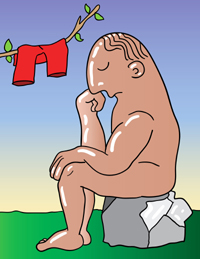Wikipedia and its 'bad seed': Is Web 2.0 a friend of true knowledge?


Larry Sanger’s Citizendium mission to shepherd the brain power of what he estimates is 3% of the Internet population; intellectuals or ‘educated, thinking people who read about science or ideas regularly.'
I cited Sanger’s enumeration of four “serious and endemic problems” afflicting Wikipedia and its community. Of the four issues underscored by Sanger, I believe his calling Wikipedia on its commitment to “amateurism” is the most chilling:
This arguably dysfunctional community is extremely off-putting to some of the most potentially valuable contributors, namely, academics. Furthermore, there is no special place for academics, so that they can contribute in a way they feel comfortable with. As a result, it seems likely that the project will never escape its amateurism. Indeed, one might say that Wikipedia is committed to amateurism. In an encyclopedia, there's something wrong with that.
Why is Wikipedian amateurism the most serious of Wikipedia's dysfunctions? The other three issues cited by Sanger are mainly structural and organizational and are easily rectified by willing parties. The Wikipedian disregard for the sanctity of truth, facts, learned knowledge and practical real-world experience, however, is reflective of society’s current ill conceived cult of the everyman.
In “Web 2.0 smackdown: intellectuals vs. amateurs in Citizendium” I projected that Sanger’s imagining “what is possible with tens of millions of intellectuals working together on educational and reference projects” would be deemed politically in-correct. Sanger wistfully imagines:
What could attract them to pool their intellectual power? What content creation systems would best harness this power? What fantastic things might result? Imagine the discussions, the journalism, the news summaries, the textbooks and educational material, the encyclopedias, the libraries, the multimedia, the 3D universes, not to mention brand new sorts of resources possible for the first time and only through massive collaboration.
Nicholas Carr confirms a politically correct backlash to Sanger’s ode to intellectualism, referencing “relativists” Cory Doctorow and Clay Shirky:
intellectuals make the very best anti-intellectuals. An architect does not achieve expertise through some arbitrary social process of "credentialling." He gains expertise through a program of study and apprenticeship in which he masters an array of facts and techniques drawn from such domains as mathematics, physics, and engineering. If you doubt that, grab someone off the street and have him design a skyscraper. The same goes for a doctor, an electrician, a jet pilot, a software engineer, a zoologist, a scholar of romantic poetry, or a manicurist. The degree or certification is no more the essence of expertise than a wedding ring is the essence of love. The degree or certification is a trivial adornment. The expertise is what's real - it's what abides - and to call it socially constructed is not only to denigrate the expert but to denigrate the very basis of culture.
To strengthen the “very basis of culture,” Sanger’s call to intellectual arms ought not to stop at the Wikipedian borders, or even with Web 2.0 open systems. Relativism is a bane on society, both online and off.
I have served as Adjunct Professor of Internet Strategy at New York City academic institutions and have instructed students for whom Wikipedia is the reference of choice. The words of tenured Professors may be dissed as boring “old fart” ramblings, but Wikipedian writings are embraced as turnkey, new-age gospel.
In “Web 2.0 “knowledge” future of modern humanity? (I hope not)” I ask:
Shall we honor the lowest common denominator component of user-generated content…bad music…goofy photos…personal diatribes…porn…spam— (as) “so much knowledge”? If we did, it would be an affront to “objective scientific” knowledge.
How about Wikipedia, “the free encyclopedia that anyone can edit”? Shall we accept its user-generated content as knowledge creation? How can we, when Wikipedia’s own “About Wikipedia” page warns: “Because of recent vandalism, editing of this project page by anonymous or newly registered users is disabled.
I conclude by referencing philosophical writings on the scope and limits of knowledge:
Call me old school, but I subscribe to the notion that while individuals may be free wheeling, knowledge, by definition, must not only be structured, it must reflect verifiable truths…
If scrutinized, logical truths are displaced by Web 2.0 induced, unmanaged “knowledge,” what does modern humanity portend?”
ALSO SEE: "Is Wikipedia 'knowledge' merely third party hearsey?" and "Why Digg fraud, Google bomming, Wikipedia vandalism will not be stopped"